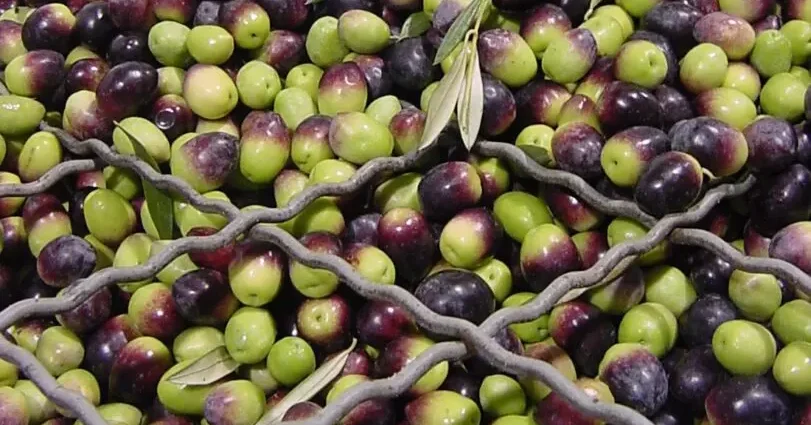How to choose the right olives?
Most often, olives are sold in cans or glass cans on store shelves. Olives in special plastic bags can be an economical option. Capacity does not really matter when evaluating the quality of this product, but it does affect the price. Olives in glass jars are more expensive.
Olives are sold most often of three types:
- fruits with seeds;
- pitted fruits;
- stuffed olives.
When buying olives, it is important to study not only the information on the labels, but also to inspect the containers for damage and defects. In glass jars, it is easiest to visually evaluate the fruits.
How to choose olives
The container with olives should not have even the slightest damage. Dents on tin cans should be a reason to refuse a purchase. Double labels are also not allowed. Before buying olives, you need to inspect them as fully as possible. The numbers indicated on the containers with a dash are indicative of the number of fruits per gram. The larger the first number, the smaller the olives will be.
What olives should you buy:
- if olives are bought in a glass jar, then their brine should be transparent, the filling, if any, should not fall out, and the fruits themselves should have a rich and uniform color;
- the highest quality and most delicious olives are Mediterranean fruits (for example, Russia or Turkey cannot be an olive producer);
- olives have a more intense and sour taste than olives (this fact must be taken into account when buying, especially if the fruits are tried for the first time);
- stuffed olives contain more preservatives than fruits with seeds (you can buy such olives, but the list of ingredients should not be too voluminous and contain a large amount of completely incomprehensible components);
- between tin, plastic and glass packaging, it is better to give preference to the latter option (in plastic, the oxidation process can quickly begin, and olives, canned according to accelerated technologies, are most often placed in a tin container);
- the caliber must be indicated on any type of package (numbers separated by a hyphen indicating the number of fruits per 100 g);
- natural preservation olives can only be stored for 6 months (if the expiration date indicated on the package exceeds this indicator, then it will not be possible to call the way of their preservation natural);
- when buying olives, it is necessary to compare the price of several goods (if the cost is radically underestimated, then you should not risk buying such olives);
- olives and olives are the fruits of the same tree, but with varying degrees of ripening, therefore, in the presence of a green-black color of the fruits, we can conclude that the manufacturer did not collect them correctly, unreasonably canned and the goods on the counter are not of high quality.
Fresh olive fruits can be of different colors. At each stage of ripening, olives are used for specific purposes. You should not take risks with the purchase of fruits of unusual flowers. The ideal option is regular green olives with a solid skin color.
What olives are not worth buying:
- you should not buy olives in glass jars if it is noticeable that the fruits are damaged, the filling has fallen out of them, the brine has become cloudy or contains foreign particles;
- you should not buy olives in torn bags or deformed cans;
- if blotches, streaks or spots are visible on the olives, then it is better to refuse them (no variety of olives implies the presence of uneven color or blotches);
- if the uneven color of the fruits is visible, then you should not buy them either;
- it is necessary to abandon the purchase of olives if traces of oxidation are visible on the container, and there is sediment in the brine (such olives were improperly canned, stored for too long or began to deteriorate).
The shelf life of olives is an important nuance that needs to be paid special attention to. Canned fruits can be stored for quite a long time, but expired olives should never be bought. Eating them in food can cause serious harm to health.










